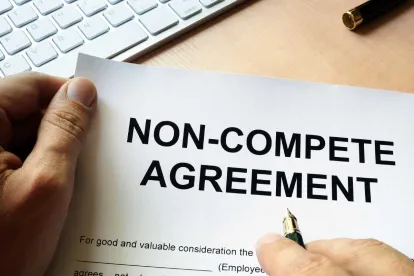If you are prepared to accept “bold” as a substitute for “reasoned and sensible”, then there is much to like in the government’s formal response to its 2020 consultation on restrictive covenants, which was finally published last month. It is this which seeks to explain the thinking behind the proposal we covered here – to limit the maximum duration of non-competition covenants in UK contracts of employment to 3 months. As always post-Brexit, it seems, the document begins with some Rule Britannia statistics and assertions around the good work being done on the economy. Near-record highs of people in work and those in reported unemployment, it says. Maybe I missed the references to soaring inflation, crippling mortgage costs or paralysing industrial discontent, but I am sure they’re also in there somewhere. All this is a prelude to more rabble-rousing fluff around making Britain “the most dynamic place in the world to work and to launch, grow and do business” and a particularly fatuous reference to “leading the world in cracking down on the use of non-compete clauses” as if they were street-crime, drug use or Japanese knotweed, not an accepted and valued part of the English employment law landscape over hundreds of years.
Finally we reach the key question of whether reforms to non-competition clauses could boost innovation though the “diffusion of ideas”, or as many employers will probably prefer to term it, the leakage of confidential information and unfair exploitation of their investments in IP, clients, and staff. The 2020 consultation did not attract the attention in this respect which it perhaps should have done. While I understand that the US government has received over 20,000 responses to its own proposals to limit the use of covenants, Westminster received just 104 of them, of whom over a third were individuals with their own perspective on the question, and less than a quarter were employers. By the time you strip out lawyers, unions, and trade organisations, scarcely 60 people contributed, and the quality of the finished product fully respect that paucity of input.
Of those 104 respondents to the consultation, 60% favoured a limit on the length of non-competition covenants. A majority for the government, it seems, but of that 60%, less than 20% saw 3 months as the appropriate ceiling. There is little explanation for the choice of that period anyway despite the longer durations preferred by the great majority, except of course that it is “bold” and shorter than the current average of such clauses, which the response to the consultation records as around 6 months.
Again, no obvious consideration is given to the position of employers (especially the very start-ups which these proposals were originally aimed at helping) whose goodwill, investment, connections or IP are put at risk by key employees moving to competitors at short notice. The government accepts that common law principles should continue to apply to non-competition covenants of three months or less (i.e. that they will be void unless reasonable), so even at three months, there is no guarantee that your covenant will stick. Paying lip-service to common law principles is fine, however, but in imposing this maximum, the government is ignoring the wealth of common law authority generated by exhaustive submissions by and to some of the country’s best legal brains over many years which accepts such covenants as potentially reasonable even at 4 times that long. In other words, a non-competition restriction may well be reasonable at common law (by definition, therefore, fully appropriate to the risk being protected against) but that is no longer seen as a good basis for employers being allowed to use it.
It remains possible to hope that the scheduled introduction of these restrictions “when parliamentary time allows” means that like all the other past covenant-reform proposals from 2020 and earier, this one will be quietly abandoned too. If it is not, then there will be much to be done by employers to revise their senior service agreements to reinforce confidentiality and IP wording, revisit notice periods and garden leave provisions, and consider linking non-competition obligations to stock or option grants outside the contract of employment.
While this change is very unlikely to have effect in relation to covenants that pre-date it, it will probably catch not just new contracts but also variations to old ones falling after it becomes law. As a result, this could be a good time to also review the duration of your existing non-competition clauses. If time has rendered them inappropriately wide in their duration or geography or how you define “the competition,” for example, consider making those changes now as it is going to get much harder to do so if and when this little gem becomes law.




 />i
/>i

